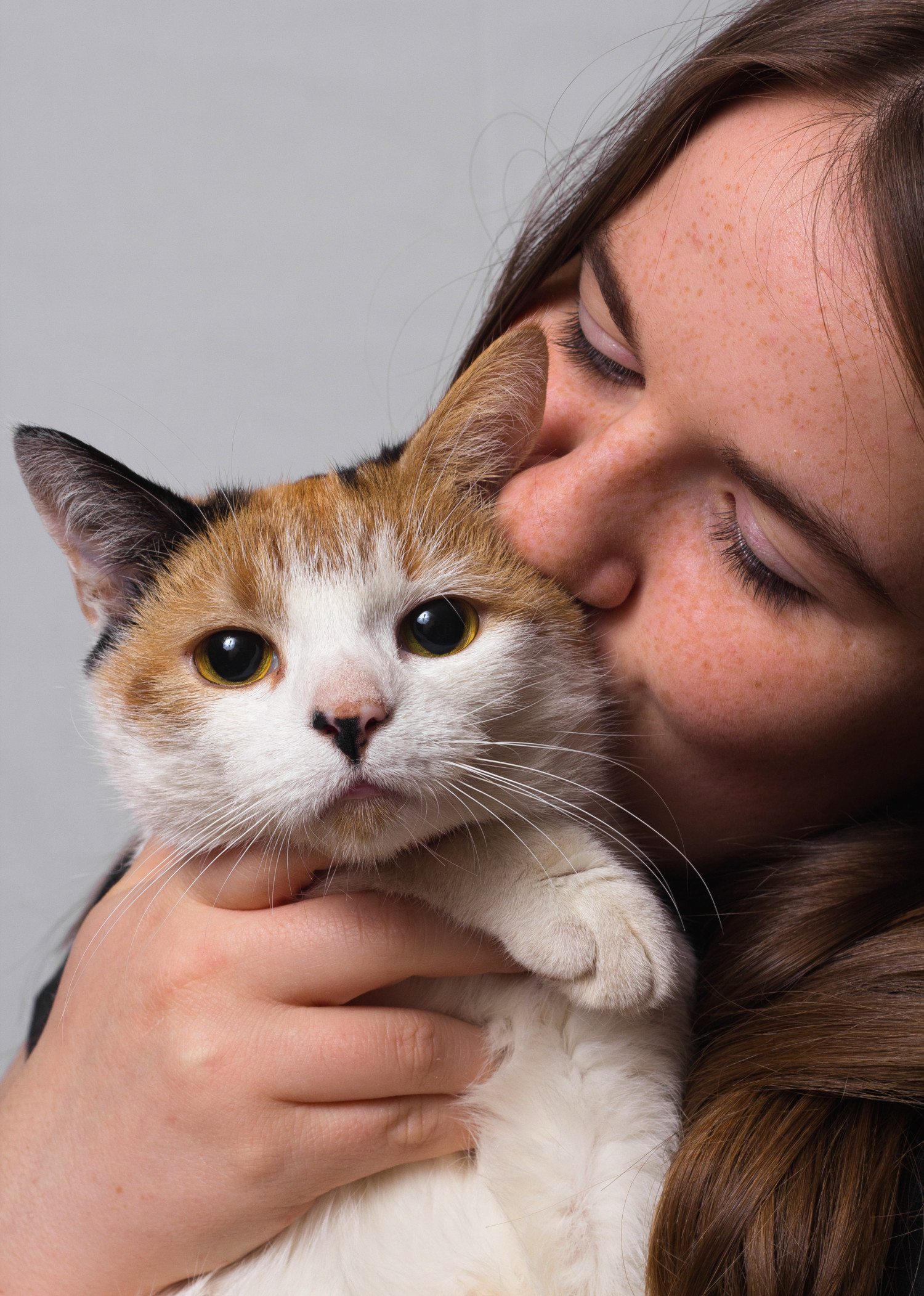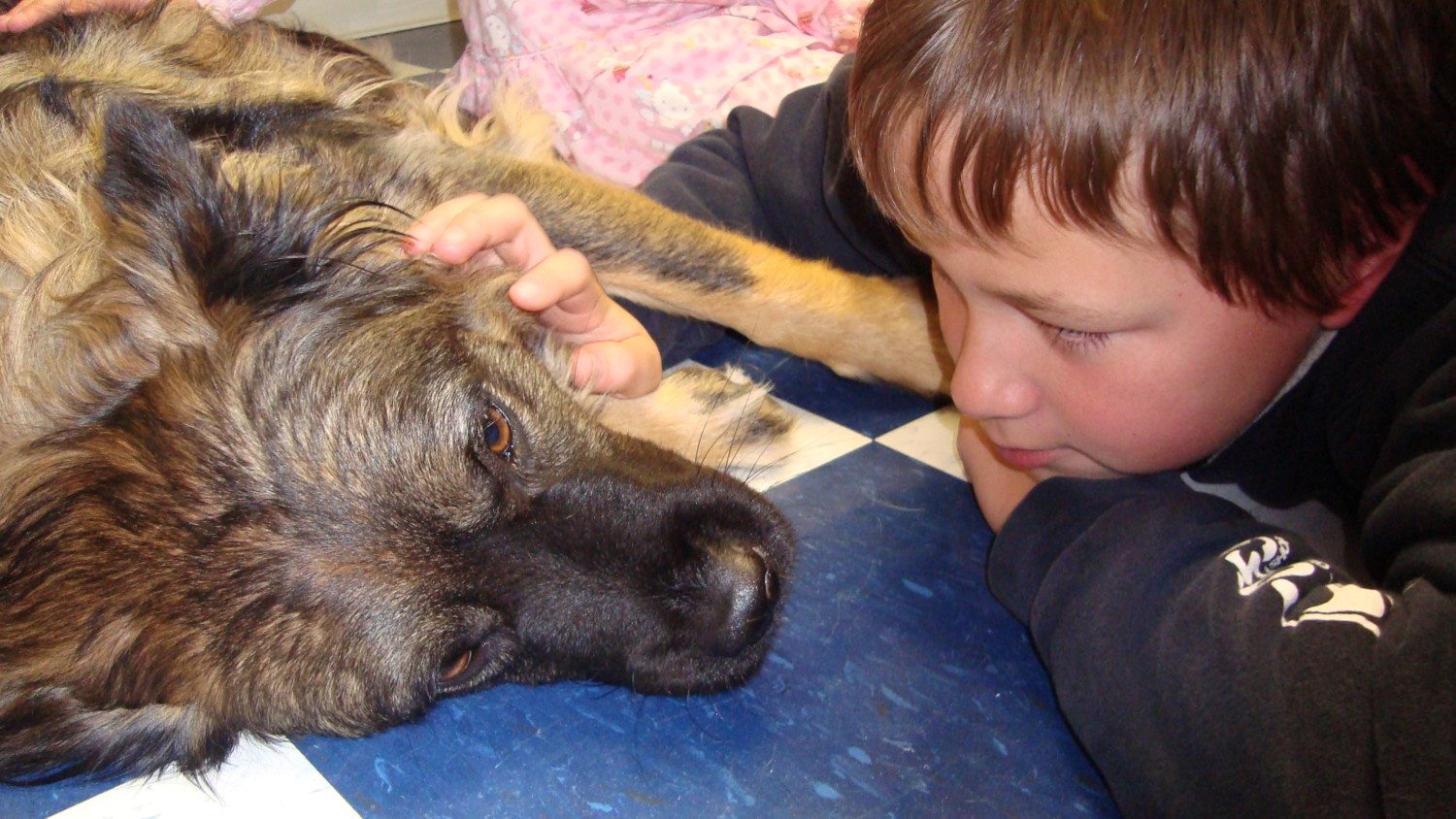According to a Harris Poll survey, more than three in five American households have at least one pet. Of those pet owners, 95 percent consider their furry friends to be part of the family.
Since most animals have a much shorter lifespan than their human companions do, coping with the loss of a beloved fur-baby at some point is practically unavoidable. And sometimes, pet parents are faced with the daunting task of deciding whether that time has come.
“The hardest of part of pet ownership for many is knowing when it’s the right time to say goodbye,” says integrative veterinarian and author Dr. Carol Osborne, DVM. “Our pets will try and tell us they not feeling good in several ways.
“In many cases, offering your pet ‘death with dignity’ can be a pet owner’s greatest act of love,” she says. “Waiting until that last dreadful moment during which pets suffer needlessly is a horrid experience for any pet, much less a beloved best friend. Many pet owners hope their best friend will pass naturally in their sleep; unfortunately, in this veterinarian’s experience, while that does occasionally happen, it is the exception rather than the rule.”
Learning the various factors to look out for when considering euthanasia can give you peace of mind when making this difficult, yet often loving decision.

Chronic Pain
The first course of action should be to visit a trusted veterinarian. Your vet can tell you whether your pet is suffering, and if anything can be done to eliminate or at the very least control the pain.
“Certainly, having proper diagnostics from your veterinarian allows you to definitively diagnosis terminal, end stage conditions such as cancer or end stage kidney failure for example, from which a permanent cure is not possible,” says Dr. Osborne.

Unable To Eat Or Keep Food Down
“Persistent loss of appetite is the single most reliable sign and way your dog tells you he or she has had a great run,” says Dr. Osborne, “but at this time it’s just not good anymore.”
If your pet is staying hydrated but has a couple of “off” days, just keep an eye on things. However, a loss of appetite that continues past 24 to 48 hours is a cause for concern. Similarly, vomiting or diarrhea that is ongoing and causing dehydration or significant weight loss warrants a call to the vet.

Trouble Standing Or Walking
Immobility is another telling sign that it may be time to let go. If your pet is unable to stand up without assistance or cannot walk without falling and there is no injury or other treatable cause, you should speak to your vet about the possibility of euthanasia.

Ongoing Breathing Difficulties
If your pet is getting on in years or has been diagnosed with terminal illness and you notice chronic labored, rapid and shallow breathing or excessive coughing, your precious animal might be letting you know the time is near.

Lethargy And Loss Of Interest
When beloved toys, prized treats and favorite pastimes, such as going for a ride in the car, taking a walk or playing with the best toy ever no longer hold interest for your four-legged family member, and even strokes and hugs from favorite humans provide little comfort, it could be the right time to say goodbye.

Severe Incontinence
A little loss of control may simply be a sign of aging. For instance, dribbling or wet spots on your pet’s bed could simply be a “leaky” bladder, which is more of a nuisance than anything else. However, if your fur baby regularly soils himself and seems to have lost control of his bladder or bowels, it could be a symptom of the organs shutting down.

What To Expect
If you decide that euthanasia is the best, loving step to take for your pet, know that it is generally a calm, peaceful process.
“Depending on if you have an in-home service or go to your vet’s office, the process can vary,” Dr. Osborne explains. “With in-home euthanasia, the pet owner has a veterinarian come to their home and put their pet to sleep. Usually the process involves a single injection that is administered and then your pet will slowly and painlessly go to sleep over 30 to 60 seconds. If you do choose to go to your veterinarian’s office, the staff will try and do their best to make the process as straightforward and simple as possible.”
No matter how much time you have to make this difficult decision, be sure to give even the youngest family member time to prepare and love on your beloved pet.
“It is never easy to lose a furry member of the family,” acknowledges Dr. Osborne. “This loss can be compounded when trying to explain to young children why their pet is gone. Oddly enough, children are often far more accepting of this experience than many adults. Spend quality time with your pet and let everyone say their goodbyes.”

[h/t: TODAY]
This story originally appeared on Simplemost. Checkout Simplemost for other great tips and ideas to make the most out of life.

